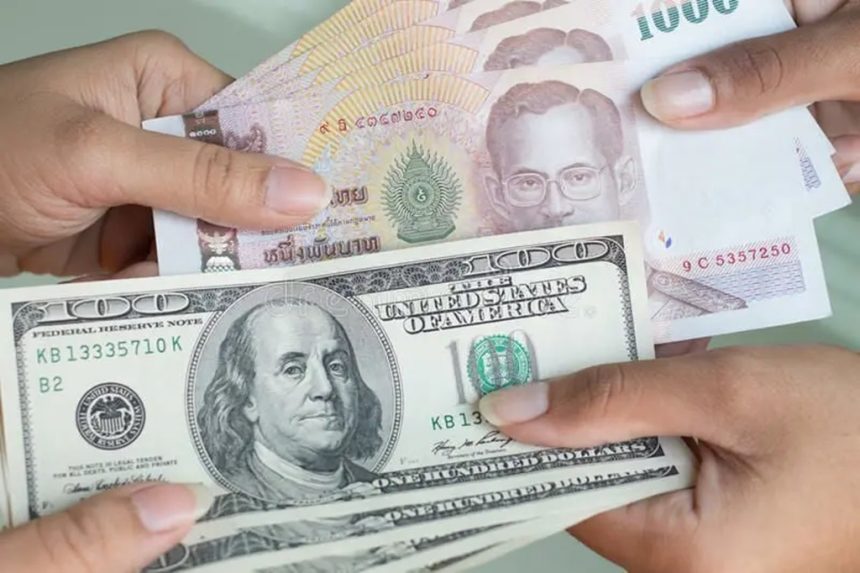Poon Panichpibool, a capital market strategist at Krungthai Global Markets, predicts that the Thai baht will move between 32.80 to 33.00 baht/USD after hitting a 19-month high of 32.93 baht versus the US dollar (USD).
According to Poon, there is a chance that the Thai baht would gain some more traction before reversing course if the USD rises and foreign investors begin liquidating their Thai stock holdings to realize quick gains.
Kriangkrai Thiennukul, president of the Federation of Thai Industries, has urged the Bank of Thailand to stop the Thai baht from appreciating too much about the US dollar, as this would reduce the competitiveness of Thai exports.
Companies currently in negotiations and those that have already exported goods from Thailand but have not received payment from their foreign buyers will be most impacted by the baht’s appreciation because the buyers will probably request a price adjustment, which would result in lower profits for the Thai exporter.
High Thai Baht Affects Tourism
With less Thai baht after exchanging their currencies, travelers might decide to travel elsewhere, which would also impact the tourism industry.
The Thai Chamber of Commerce has encouraged relevant agencies to prevent the baht’s value from fluctuating sharply, aiming to keep it stable and in line with internal and global economic conditions.
Pote Aramwattananon, vice president of the Thai Chamber of Commerce, cited data from the Kasikorn Research Centre demonstrating that the Thai baht has strengthened by 9% to 10% in a short amount of time, and Thai exporters suffer a revenue loss of approximately 100 billion baht annually, or 0.5% of GDP, for every percentage point increase in the Thai baht’s value relative to the US dollar.
According to Pote, export goods that primarily rely on local resources—such as food and agricultural products—would be the most severely impacted by abrupt changes in the value of the baht since their export price will automatically rise by roughly 10%, reducing their ability to compete on the international market.
According to him, Thai businesses find it challenging to properly respond to market demands and plan their production and marketing strategies ahead of time due to the swift swings in the value of the baht.
Fed Reduces Rates
Meanwhile, Sanan Angubolkul, president of the Thai Chamber of Commerce, announced that the chamber’s board members will soon meet with the governor of the central bank and the minister of finance to explore the best ways to address these urgent economic issues.
He told Thai PBS that a perfect exchange rate would be 34 baht to the US dollar.
Regarding the minimum wage, Sanan stated that the majority are against a uniform salary for all employees, stating that it needs to be modified based on the state of the economy in each province.
According to Thanawat Pholvichai, rector of the University of Thai Chamber of Commerce, the Monetary Policy Board should lower interest rates to a suitable level. The US Federal Reserve recently reduced its policy rate by 0.50%, from 5.25% and 5.50% to 4.75% and 5.00%, marking the first rate reduction in several months.
Additionally, he calculated that assuming the country’s flooding will abate over the next 15 days, the recent and ongoing floods will damage around 21.5 billion baht or 0.12% of GDP.
Trending News:
John Deere to Pay US$10 Million for Bribing Officials in Thailand
John Deere to Pay US$10 Million for Bribing State Officials in Thailand

Salman Ahmad is known for his significant contributions to esteemed publications like the Times of India and the Express Tribune. Salman has carved a niche as a freelance journalist, combining thorough research with engaging reporting.














